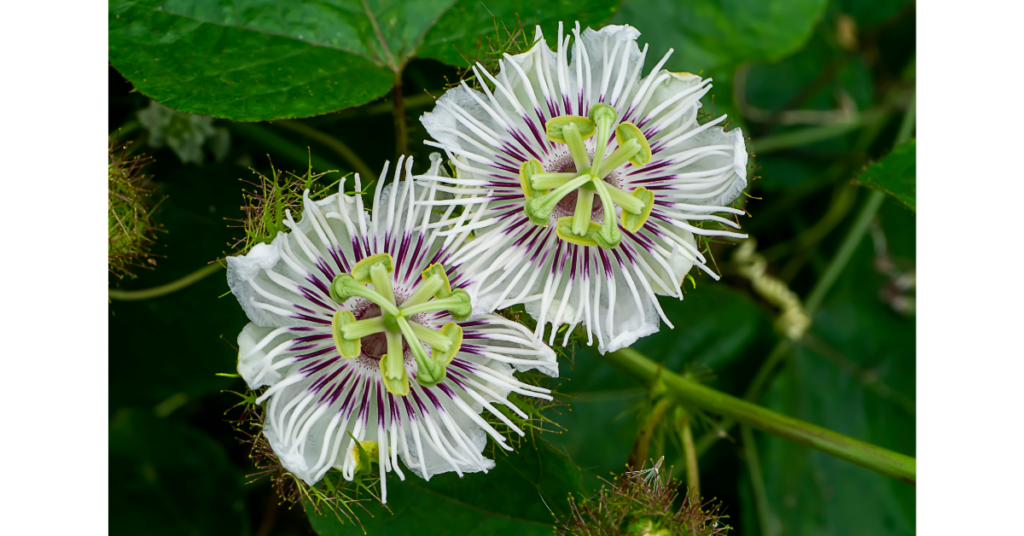Passionflower (Passiflora incarnata)
The passionflower is loaded with Christian theological symbolism. It takes its name from the Latin ‘passio’, which means ‘suffering’ and ‘enduring’, referring to the short period before Jesus’ death, known as the Passion.
Other names: Maypops, passion vine.
Description and the places it grows in
The passionflower is a perennial vine that is native to the southern US, South America, and the Caribbean. It has white flowers with pink and purple calyxes.
Parts used
Dried leaves that are harvested before flowering.
Uses
Antispasmodic, sedative.
Sedative: Passionflower is non-addictive and helps greatly with anxiety and tension bringing about a tranquil feeling due to alkaloids and flavonoids.
Asthma: As an antispasmodic, it relaxes the muscles and, if the asthma is anxiety induced, it helps to calm the person down too.
Other uses: Neuralgia and shingles.
Constituents
Alkaloids, flavonoids, harmane, harmaline, harmol and harmalol, gum, steroids, and sugars.
Contraindications
Do not mix with antidepressants known as monoamine oxidase inhibitors.
It has not been proven safe to take when pregnant.

